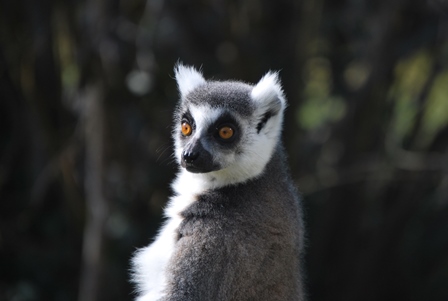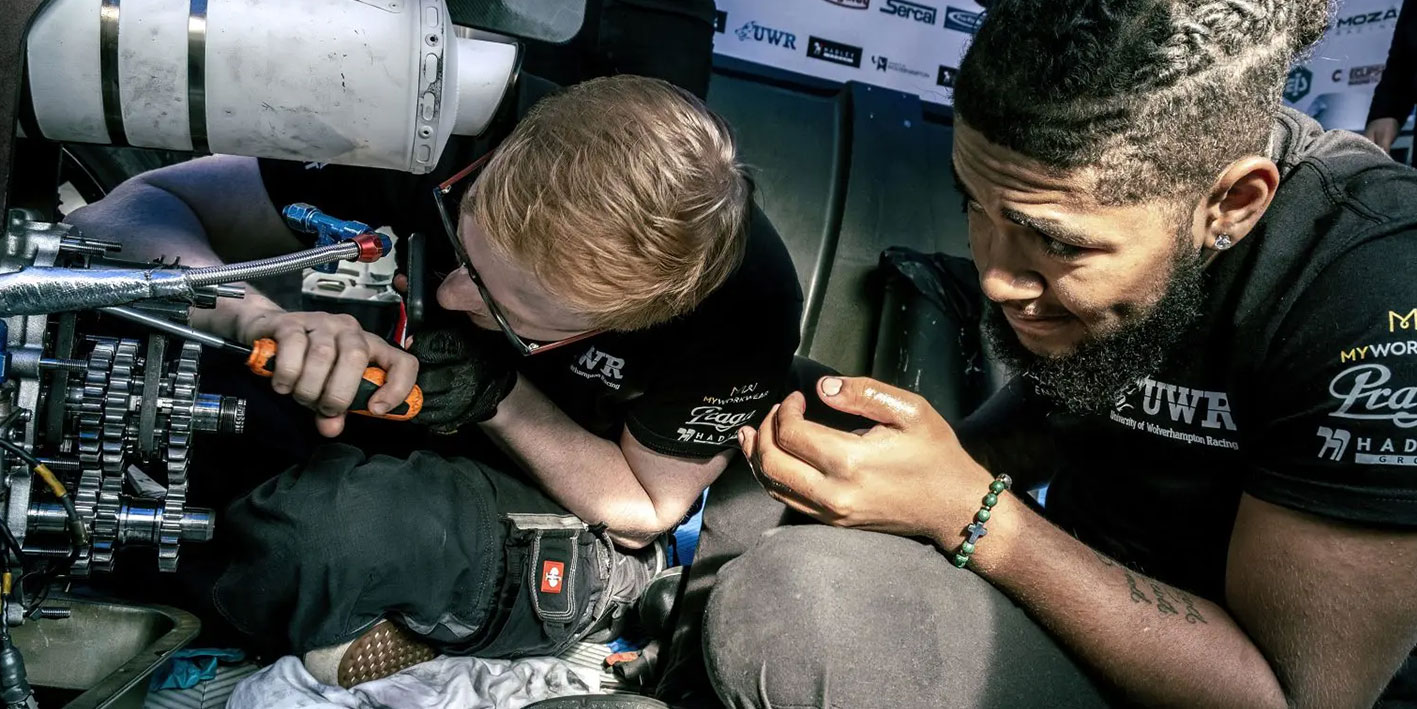
Academic research to improve primate welfare in captivity
A University of Wolverhampton academic is working to improve the welfare of primates in captivity across Europe.
Dr Stefano Vaglio is researching training, environment enrichments and enclosure design to support the work of zoos which are breeding and caring for species endangered in the wild.

He hopes to influence policy and practice around primate welfare and has recently published a paper in the journal of Applied Animal Behaviour Science on the benefits of Positive Reinforcement Training (PRT) for ring-tailed lemurs.
His aim was to make situations where the animals may be temporarily isolated, such as moving enclosures, medical checks or changing zoos, easier and less stressful.
The PRT study focused on a group of 11 lemurs housed at Parco Natura Viva in Italy.
Lemurs were used as a case study because they are a common species in zoos and can be shy with humans while sociable with each other. As a social species, isolation can be stressful, so the training focused on keeping them calm and rewarding them while temporarily isolated.
In the wild, female lemurs are dominant and males are occasionally rejected from a group, meaning they have to re-socialise with new lemurs. In captivity, good practice is to mix social groups from time to time to mimic this and prevent aggressive behaviour.

Dr Vaglio, a lecturer in Animal Behaviour who specialises in studying primates, said: “Non-invasive techniques were employed in the study and the lemurs were free to decide whether to enter the training area and take part in the sessions.
“The lemurs were able to cope well with the PRT to isolate individuals from their group and we recorded positive benefits, such as a decrease in stress and aggression. Social skills were also noted to have improved when the lemurs returned to their groups.
“We are very pleased with the results of our study and hope it will influence EU policies and assist in the management of captive lemurs. PRT can be used to help primates adapt to change and cope with different situations.”
Dr Vaglio said that lemurs are native to Madagascar where there are 31 species, all endangered. 87 per cent of forest there is gone now due to traditional ways of agriculture which are not sustainable.
“If captive species are doing well, we can help to inform and educate communities to have a positive influence on conserving those in the wild,” he said.
He is also working with UK zoos and says that while they are generally ahead of the rest of Europe in terms of successful training and quality enclosures, there is still more to be done.
Dr Vaglio is currently looking at environmental enrichment for captive primates. This includes sensory stimulae to reflect natural environments, such as introduction of noise mimicking sounds in the wild (predators and birdsong), and even aromatherapy; trials are currently being conducted with lavender-infused climbing ropes to see if this promotes relaxation.
ENDS
For more information please contact the Corporate Communications Team.


/prod01/wlvacuk/media/departments/digital-content-and-communications/images-2024/240328-Varsity-Line-Up-Resized.jpg)
/prod01/wlvacuk/media/departments/digital-content-and-communications/images-18-19/220325-Engineers_teach_thumbail.jpg)
/prod01/wlvacuk/media/departments/digital-content-and-communications/images-2024/240404-Digital-Humanities-Training-Resized.jpg)
/prod01/wlvacuk/media/departments/digital-content-and-communications/images-2024/240320-Uzbekistan-Resized.jpg)
/prod01/wlvacuk/media/departments/digital-content-and-communications/images-2024/240229-The-Link-Resized.jpg)
/prod01/wlvacuk/media/departments/digital-content-and-communications/images-2024/240404-Pharmacy-Students-Resized.jpg)

